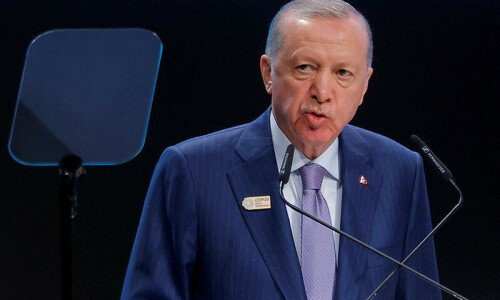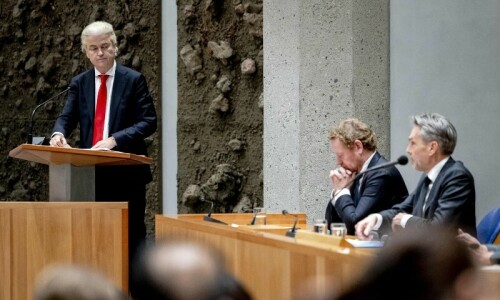THE arrests at a Punjab University hostel and the subsequent ugly street protest by the Islami Jamiat-i-Talaba in Lahore on Monday were the latest eruptions of tensions that had been brewing for a while now. Simply put, the Punjab University has in recent times been trying to cleanse its campuses of the influence the Jamiat was allowed to build up over time. The violent rioting on Monday was a statement of the Jamiat’s resolve to resist its dethroning. The latest round in the PU-IJT tussle had its origins in an incident last week at the Law College in Lahore in which some Jamiat activists were accused of browbeating a couple of teachers. The incident itself was cause enough for a probe and solution. But in the given circumstances, it was more reason for what is being widely seen as intensification of the campaign to rein in the Jamiat, an action that has been justly demanded over the years to free the Punjab University from fear and the unwritten code imposed on it.
It is not too difficult to see what distinguishes the current Punjab University administration from its predecessors who were always reluctant to move against the Jamiat’s excesses. The IJT’s parent body, the Jamaat-i-Islami, has taken rabid stands on crucial national and global issues such as the war against militancy. There are routine revelations which project the Jamaat as not just a sympathiser of the militants but as their partner. In recent days, reports of the nabbing of a Jamiat worker in Lahore with alleged Al Qaeda links and the death of a former, prominent Jamiat member from Karachi in a drone attack in the tribal areas enhance the portrayal of the JI and IJT as radicals. This image in the context of power and its demands also makes it impossible for the PML-N to maintain good relations with its old JI ally. The separation of the two parties raises the prospect of a real purge that has been long in coming.









































